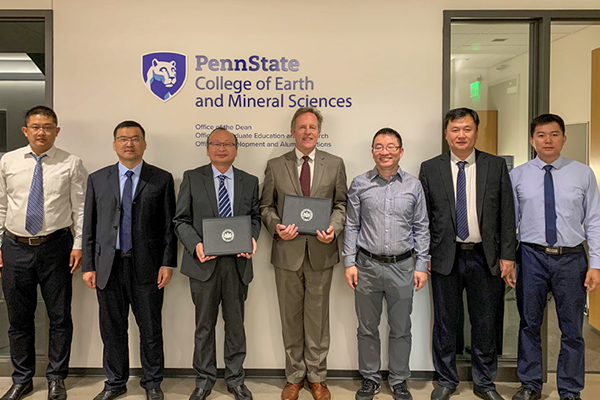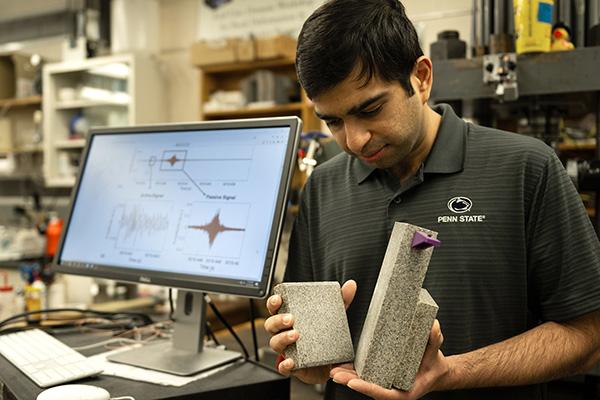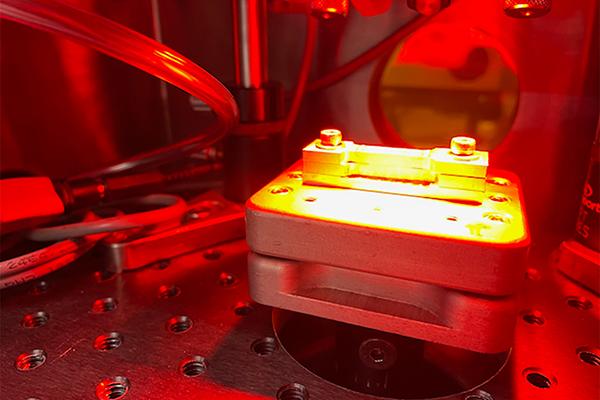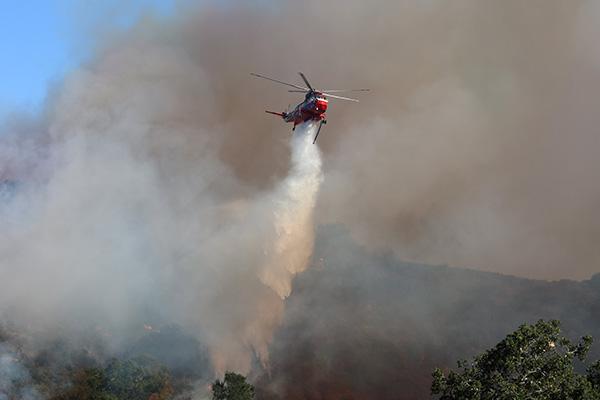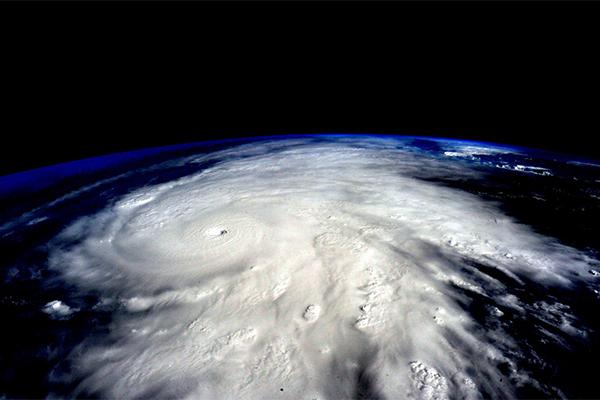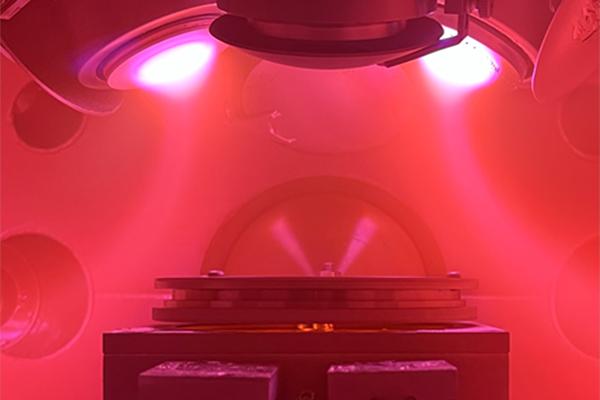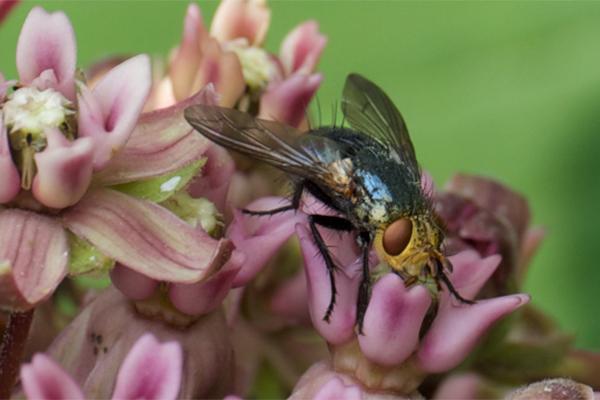Read the latest news about research conducted by investigators in the College of Earth and Mineral Sciences. Our faculty and students are continually advancing technology, creating solutions and expanding knowledge with new and innovative research.
News
Photon-counting CT scanning is the next-generation of computer tomography diagnostics, providing precise, multi-color imaging to simultaneously track biological processes. The Laboratory for Materials in Medicine, led by Dipanjan Pan, the Dorothy Foehr Huck & J. Lloyd Huck Chair Professor in Nanomedicine and professor of materials science and engineering and of nuclear engineering at Penn State, is advancing the imaging capabilities by developing contrast agents to target specific molecules and processes that may reveal more about disease progression than traditional scans.
Penn State’s College of Earth and Mineral Sciences and Shandong University of Science and Technology in China have signed a memorandum of understanding (MOU) to pursue collaborative research, teaching and educational opportunities. The goal of the MOU is to strengthen and disseminate research outcomes in environmental and safety sciences and mining engineering.
By refining an artificial intelligence approach to predicting earthquakes in the laboratory, or labquakes, engineers at Penn State are paving the way to one day help forecast natural earthquakes.
Fuel cells offer a form of clean energy across many sectors and are of particular interest in vehicles, where they produce no emissions. The production of fuel cells requires the use of a rapid laser welding process; however, welding at too high a speed results in humping, marked by surface irregularities on the weld seam.
As wildfires relentlessly sweep across Southern California and other parts of the world, Manzhu Yu, an assistant professor of geography at Penn State, offered insights into the ongoing crisis in Los Angeles (LA).
Mingyu Yu, doctoral candidate in materials science and engineering at Penn State, recently received the Graduate Student Research Award from the professional society AVS: Science and Technology of Materials, Interfaces and Processing for innovative research in two-dimensional materials.
Penn State researchers will use a grant from NASA to improve atmosphere and ocean forecasts by incorporating AI and satellite data into current forecasting models.
New discovery offers a new way to make ferroelectric materials without modifying their chemical formulation, which commonly degrades several useful properties.
Despite their reputation as buzzing nuisances, flies serve a critical role as some of the Earth’s most prolific pollinators — and new research led by Penn State scientists suggests they are increasingly at risk due to rising global temperatures.
The microelectronics industry is nearing a tipping point. The silicon chips at the heart of everyday electronic devices are running into performance limits, raising the need for new materials and technologies to continue making faster, more efficient devices.



